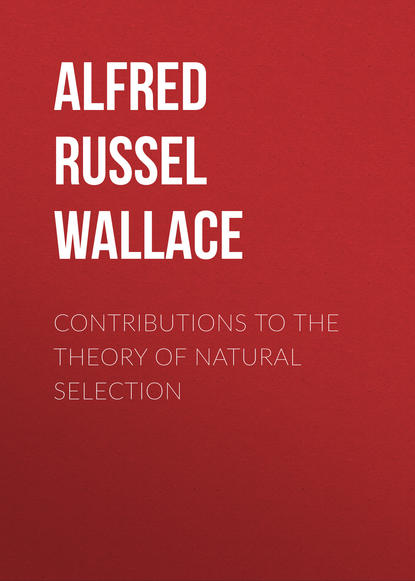По всем вопросам обращайтесь на: info@litportal.ru
(©) 2003-2024.
✖
Contributions to the Theory of Natural Selection
Автор
Год написания книги
2019
Настройки чтения
Размер шрифта
Высота строк
Поля
biblis, 172 (#x5_x_5_i18).
Cetoniadæ, how protected, 73 (#x3_x_3_i10);
similar colours of two sexes, 114 (#x4_x_4_i3).
Ceycopsis, 196 (#x6_x_6_i10).
Charis melipona, 96 (#x3_x_3_i39).
Chematobia, wintry colours of this genus, 62 (#x2_x_2_i66).
Chlamys pilula, resembles dung of caterpillars, 58 (#x2_x_2_i62).
Chrysididæ, how protected, 72 (#x3_x_3_i9).
Chrysomelidæ, similar colouring of two sexes, 114 (#x4_x_4_i3).
Cicindela, adaptive colour of various species of, 57 (#x2_x_2_i60).
Cilix compressa, resembles bird’s dung, 63 (#x2_x_2_i67).
Cladobates, mimicking squirrels, 107 (#x3_x_3_i58).
Classification, form of true, 6 (#x1_x_1_i239);
circular, inadmissible, 8 (#x1_x_1_i241);
quinarian and circular, of Swainson, 46 (#x2_x_2_i40);
argument from, against Mr. Darwin, 295 (#x8_x_8_i39).
Climacteris, sexual colouring and nidification of, 243 (#x7_x_7_i32).
Coccinellidæ, how protected, 72 (#x3_x_3_i9);
similar colouring of sexes, 114 (#x4_x_4_i3).
Coexisting varieties, 159 (#x4_x_4_i55).
Collyrodes lacordairei, 95 (#x3_x_3_i37).
Colour, in animals, popular theories of, 47 (#x2_x_2_i41);
frequent variations of, in domesticated animals, 48 (#x2_x_2_i45);
influenced by need of concealment, 49 (#x2_x_2_i45);
in deserts, 49 (#x2_x_2_i45), 50 (#x2_x_2_i48);
in Arctic regions, 50 (#x2_x_2_i48), 51 (#x2_x_2_i49);
nocturnal, 51 (#x2_x_2_i49);
tropical, 52 (#x2_x_2_i51);
special modifications of, 52 (#x2_x_2_i51);
different distribution of, in butterflies and moths, 58 (#x2_x_2_i62);
of autumnal and winter moths, 62 (#x2_x_2_i66);
white, generally dangerous and therefore eliminated, 66 (#x3_x_3_i1);
why it exists so abundantly although often injurious, 69 (#x3_x_3_i4);
influenced by need of protection, 113 (#x4_x_4_i2);
of female birds, 114 (#x4_x_4_i3);
in relation to nidification of birds, 116 (#x4_x_4_i5);
gaudy colours of many caterpillars, 117 (#x4_x_4_i5);
in nature, general causes of, 126 (#x4_x_4_i18);
local variations of, 173 (#x5_x_5_i23);
sexual differences of, in birds, 239 (#x7_x_7_i13);
in female birds, how connected with their nidification, 240 (#x7_x_7_i16), 246 (#x7_x_7_i49);
more variable than structure or habits, and therefore more easily modified, 249 (#x7_x_7_i53);
of flowers, as explained by Mr. Darwin, 262 (#x7_x_7_i83);
often correlated with disease, 316 (#x9_x_9_i22).
Compsognathus, 300 (#x8_x_8_i45).
Condylodera tricondyloides, 97 (#x3_x_3_i40).
Consciousness, origin of, 360 (#x10_x_10_i21);
Professor Tyndall on, 361 (#x10_x_10_i23);
not a product of complex organization, 365 (#x10_x_10_i29).
Correlation of growth, 310 (#x9_x_9_i12).











